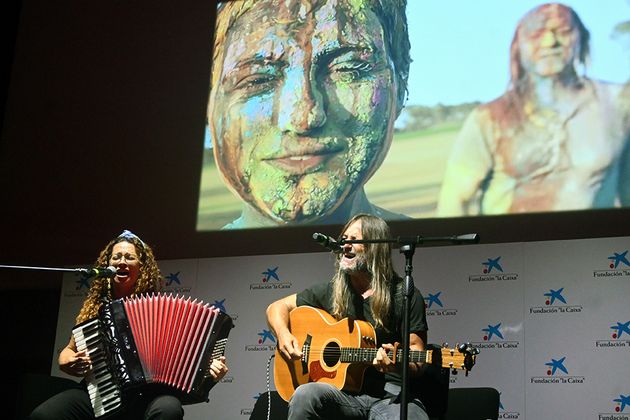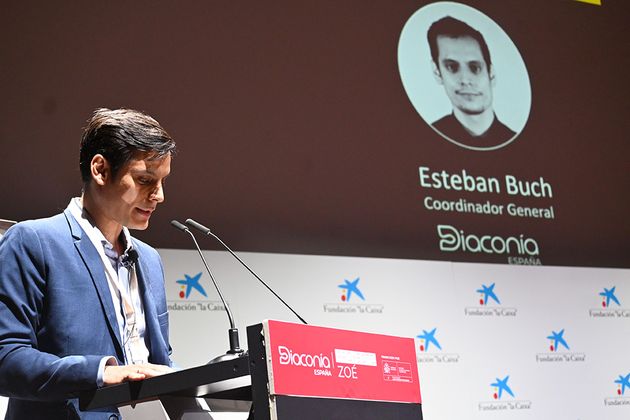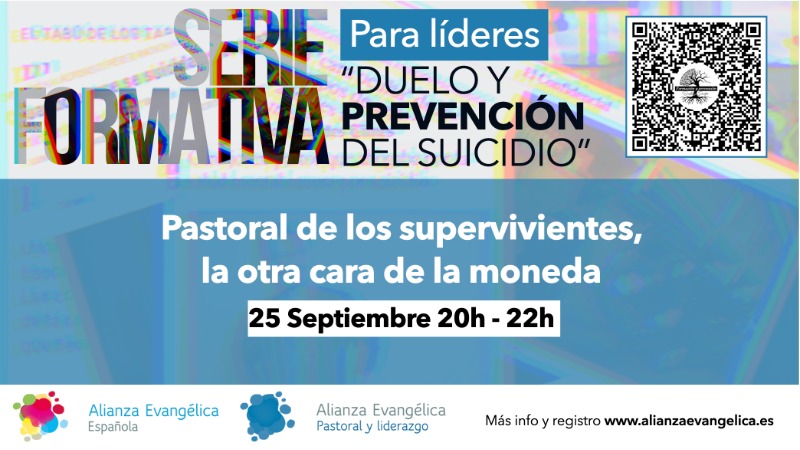“If suicide is already a taboo subject, it is even more invisible in the socially vulnerable population”, said organisers of a conference.
![People arriving at the conference.. /[link]Actualidad Evangélica[/link].](https://cms.evangelicalfocus.com/upload/imagenes/65086f71e5456_ibiactu940.jpg) People arriving at the conference.. /[link]Actualidad Evangélica[/link].
People arriving at the conference.. /[link]Actualidad Evangélica[/link].
Diaconia, the social branch of the Spanish Federation of Evangelical Religious Entities (Ferede), recently organised a conference on “Suicide and social vulnerability: a look from prevention, intervention and postvention".
The speakers focused on the socially vulnerable groups, such as asylum seekers, migrants, trafficked women and their children, and people at risk of social exclusion.
“If suicide is already a taboo subject, it is even more invisible in the socially vulnerable population”, said Esteban Buch, general coordinator of Diaconia Spain.
For Buch, “job insecurity, homelessness, discrimination, etc. .... are factors that worsen these situations. Sometimes, it seems that they are assumed or are not detected or are hidden, but they are constantly in front of our eyes”.
The conference included testimonies from Rosa Burguera and Miguel Lara (from the Christian music band Sal 150), whose daughter died by suicide some years ago, and José Carlos Soto, a suicide survivor.

In Spain, 11 people on average die by suicide every day. Over 80,000 people attempt suicide every year.
In the last five years, suicide rates in Spain rose by 13.62%, resulting in 4,097 cases of suicide in 2022, according to the analysis of data published by the National Statistics Institute.
Experts recommend the creation of a National Plan that brings together a strategy for action to address this social issue. They point out the importance of doing this along with the patient. “It is necessary to clearly identify the means of support in order to know whether there are resources available or we are facing a case of social exclusion”, they say.

Diaconia Spain has invested in communication and awareness-raising and developed a project focused on suicide prevention: Zoé (Zoé means life in Greek).
“It is really important to raise awareness of suicide prevention, because primary and immediate prevention is purely social”, said Cristina Yebra, Coordinator of the Zoé Project. “Suicide is a multi-causal and multi-factorial problem, it deserves a comprehensive approach", she said, and "tools for detection and support must be provided to speak loud and clear about suicide”, concluded Yebra.
Also in Spain, the Evangelical Alliance (AEE) continues to develop the Mourning and Suicide Working Group, which has organised a series of practical online training sessions on this topic for Christian leaders, led by professionals and experienced leaders on the issue.

[photo_footer] One of the events on prevention of suicide and mourning, organised by the Spanish Evangelical Alliance. / AEE[/photo_footer] “We aim to provide tools and resources to train those who have to accompany, intervene and prevent on a day-to-day basis”, explains the AEE.
In March 2023, there was a session called Suicide prevention: alerts and first intervention, and there will be another on 25 September focused on the pastoral care of survivors of suicide.
[donate]

Las opiniones vertidas por nuestros colaboradores se realizan a nivel personal, pudiendo coincidir o no con la postura de la dirección de Protestante Digital.
Si quieres comentar o